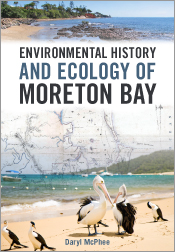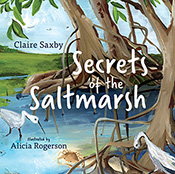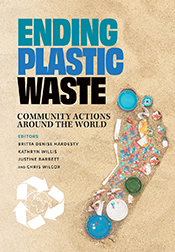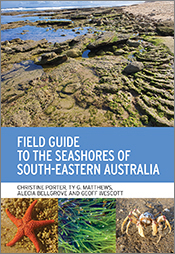Environmental History and Ecology of Moreton Bay
By: Daryl McPhee
An interdisciplinary examination of the geologic, marine and human history of Moreton Bay.
The south-east Queensland region is currently experiencing the most rapid urbanisation in Australia. This growth in human population, industry and infrastructure puts pressure on the unique and diverse natural environment of Moreton Bay. Much loved by locals and holiday-goers, Moreton Bay is also an important biogeographic region because its coral reefs, seagrass beds, mangroves and saltmarshes provide a suitable environment for both tropical and temperate species. The bay supports a large number of species of global conservation significance, including marine turtles, dugongs, dolphins, whales and migratory shorebirds, which use the area for feeding or breeding. + Full description
Environmental History and Ecology of Moreton Bay provides an interdisciplinary examination of Moreton Bay, increasing understanding of existing and emerging pressures on the region and how these may be mitigated and managed. With chapters on the bay's human uses by Aboriginal peoples and later European settlers, its geology, water quality, marine habitats and animal communities, and commercial and recreational fisheries, this book will be of value to students in the marine sciences, environmental consultants, policy-makers and recreational fishers.
- Short descriptionReviews
"The definitive book on Moreton Bay."
Courier Mail Brisbane, 26 August 2017, p. 69
"I found the text very easy to read and think it suitable for senior secondary as a resource. I can see it's best-fit for the syllabus topics of 'Managing the natural environment - Catchment management', looking at the impacts of sedimentation in Moreton Bay, for example, and "Resources and the environment - Sustaining biodiversity'."
Julie Davis, Queensland Geographer 52(2), September 2017
"The beauty of the book is that it crosses boundaries, and consequently has wide appeal: it may be picked up by a historian, who will then read the chapters on ecology and vice versa – each gaining a greater understanding of the Bay, ultimately leading to its better management."
Carol Conacher, Australian Marine Science Bulletin, December 2017
"Environmental History and Ecology of Moreton Bay provides a timely update to the ‘Moreton Bay Study’ published under the aegis of the then Healthy Waterways partnership almost two decades ago, and is likely to become a staple reference for researchers, resource managers and consultants for the foreseeable future."
John Thorogood, Australasian Journal of Environmental Management 25(2), 2018
"Environmental History and Ecology of Moreton Bay is a brief but informative and passionate description of Moreton Bay that unites the interdisciplinary work on one of Queensland’s most significant locations."
Jarrod Mesken, Queensland Review 25(2), December 2018
Details
Paperback | August 2017 | $ 69.95ISBN: 9781486307210 | 208 pages | 245 x 170 mm
Publisher: CSIRO Publishing
Photographs
ePDF | August 2017
ISBN: 9781486307227
Publisher: CSIRO Publishing
Available from eRetailers
ePUB | August 2017
ISBN: 9781486307234
Publisher: CSIRO Publishing
Available from eRetailers
Features
- A multi-disciplinary and authoritative account of the biodiversity-rich Moreton Bay region, with implications for its management
- Highlights Moreton Bay’s important habitats and unique species, including dugongs, turtles, dolphins and whales
- Relevant to other environmentally significant sites impacted by the pressures of human development
Contents
Sections:
Chapter 1 IntroductionChapter 2 The physical environment – geology, geomorphology and sedimentology
Chapter 3 The history of human use of the Moreton Bay region
Chapter 4 Benthic habitats in Moreton Bay
Chapter 5 Fish and invertebrate diversity in the Moreton Bay region
Chapter 6 Species of conservation significance in Moreton Bay: the charismatic inhabitants
Chapter 7 The fisheries of Moreton Bay and the fisheries biology and ecology of key species
Chapter 8 Nutrients, sediments, pollutants and their impacts
Chapter 9 Where to now?
Index
View the full table of contents.








